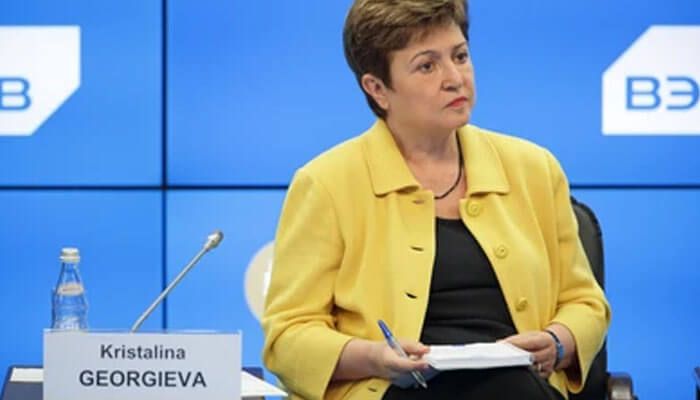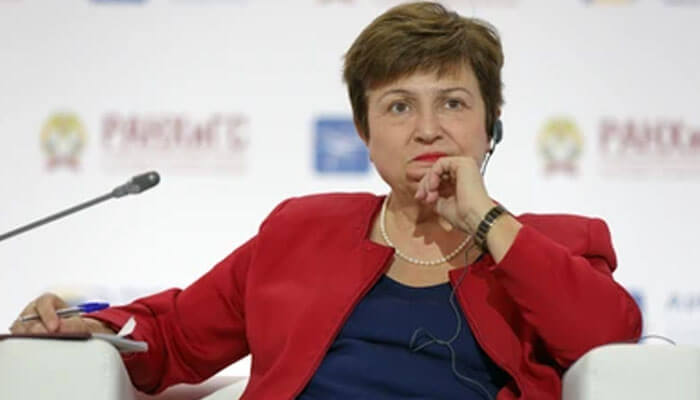Kristalina Georgieva, Executive Director at the International Monetary Fund (IMF), speaks on March 26 at the China Development Forum 2023 in Beijing, China.
After the recent instability in the banking industry, International Monetary Fund (IMF) chief Kristalina Georgieva cautioned on Sunday that threats to economic stability had escalated and emphasized the “the need vigilance.”
Speaking at a seminar in Beijing, the IMF managing director predicted that 2023 will be “another hard year,” with the global economy dropping to less than 3.0% owing to the Ukraine conflict, monetary tightening, and “scarring” from the epidemic.
“Uncertainties are unusually high,” she said at the China Development Forum, with the global economy expected to stay weak in the medium to long term.
“It is also apparent that economic stability concerns have worsened,” she adds.
“In a time of increased debt levels, the sudden shift from a protracted period of low lending rates to considerably higher rates — required to combat inflation — necessarily causes tensions and weaknesses, as the latest events in the banking sector in various advanced nations demonstrate.”
Her remarks come after the financial sector was rocked by the failure of Silicon Valley Bank and the forced acquisition of Swiss bank Credit Suisse by competitor UBS, raising concerns about contagion.
Bank shares fell on Friday as investor anxieties about the banking industry reappeared, with German Chancellor Olaf Scholz needing to reassure investors about Deutsche Bank after the long-struggling institution became a target of investor anxiety.
According to Georgieva, officials responded decisively in response to financial stability issues.
“These efforts have alleviated some market stress, but uncertainty remains high, emphasizing the need for vigilance,” she said.
The IMF chief, on the other hand, highlighted China’s recovery as a bright area for the global economy.
The IMF expects China’s economy to rise 5.2 percent this year, fueled by a recovery in personal consumption as the nation finally opens following its epidemic seclusion.
“The powerful resurgence means China is projected to account for about one-third of world economy in 2023, providing a much-needed boost to the international economy,” she said.
“On aggregate, a 1.0 percentage point improvement in GDP growth in China leads to a 0.3 percentage point gain in growth in other Asian nations – a welcome boost.”
Georgieva advised China’s leaders to pursue increased performance and refocus the economy away from speculation and more towards more long-term consumption-driven development.
“Market-oriented changes to equalize competition between private and state-owned firms, along with education spending, would considerably boost the economy’s production efficiency,” she said.




